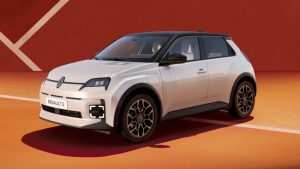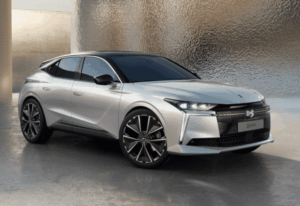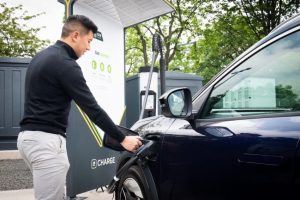A new survey reveals that while 95% of EV owners would recommend electric cars to friends and family, a growing “charging divide” threatens to leave millions of drivers behind in the transition away from petrol and diesel vehicles.
The annual Steer the Conversation report from EVA England found that drivers without off-street parking face significantly higher running costs and fewer charging options than those with driveways.
87% of EV owners with driveways reported their electric car was “much cheaper” to run than a petrol or diesel vehicle. But only half of drivers without driveways agreed.
The disparity stems from charging infrastructure access. One in four urban EV owners don’t have a home charger, compared to just 8% in suburban areas and 5% in rural locations.
Public charging costs create the main financial burden. The average price sits at 48p per kWh but can reach 98p at the most expensive charging points. Home charging tariffs start as low as 7.5p per kWh.
“With the exception of public charging costs, EVs are great to drive. But they still need to vastly improve the infrastructure and drastically reduce the cost of public charging, which, currently, is obscene,” one survey respondent said.
Another driver was more blunt: “An EV makes no financial sense for people who don’t have access to home charging.”
Despite these challenges, 69% of EV owners felt the public charging network had improved over the past year.
Vicky Edmonds, chief executive of EVA England, said the findings highlight growing inequality in the EV transition.
“Drivers are clearly loving their EVs, but these results highlight a growing inequality that can’t be ignored,” Edmonds explained. “Those who can charge at home are saving money and driving the change, while those who can’t are facing higher costs and fewer options.”
Government Response Falls Short
The Government recently announced plans to cut red tape around on-street charging solutions. New rules would remove planning permission requirements for cross-pavement gullies that run charging cables from homes to kerbside parking.
But EVA England warned these solutions can cost up to £3,000 to install. That’s another expense for drivers already facing higher charging costs.
The report surveyed non-EV drivers for the first time and found mixed attitudes toward electric vehicles.
66% of petrol and diesel drivers said they’re considering switching to electric. Among hybrid owners, 62% plan to go fully electric for their next purchase.
However, 60% of traditional car drivers without driveways said they’d never consider an EV.
The findings align with recent research from retailer Evans Halshaw showing 80% of EV owners stick with electric when part-exchanging their vehicles. A quarter of plug-in hybrid owners upgraded to pure electric cars.
“If this transition is to be truly fair, affordable and accessible, it must work for every driver, wherever they live and whatever their circumstances,” Edmonds said. “The driver’s voice needs to be at the centre of how we build the electric future.”
The charging divide particularly affects urban areas where millions of residents rely on street parking. Without significant investment in accessible charging infrastructure and cost reductions, these drivers may remain locked out of the financial benefits that make EVs attractive to homeowners with driveways.





